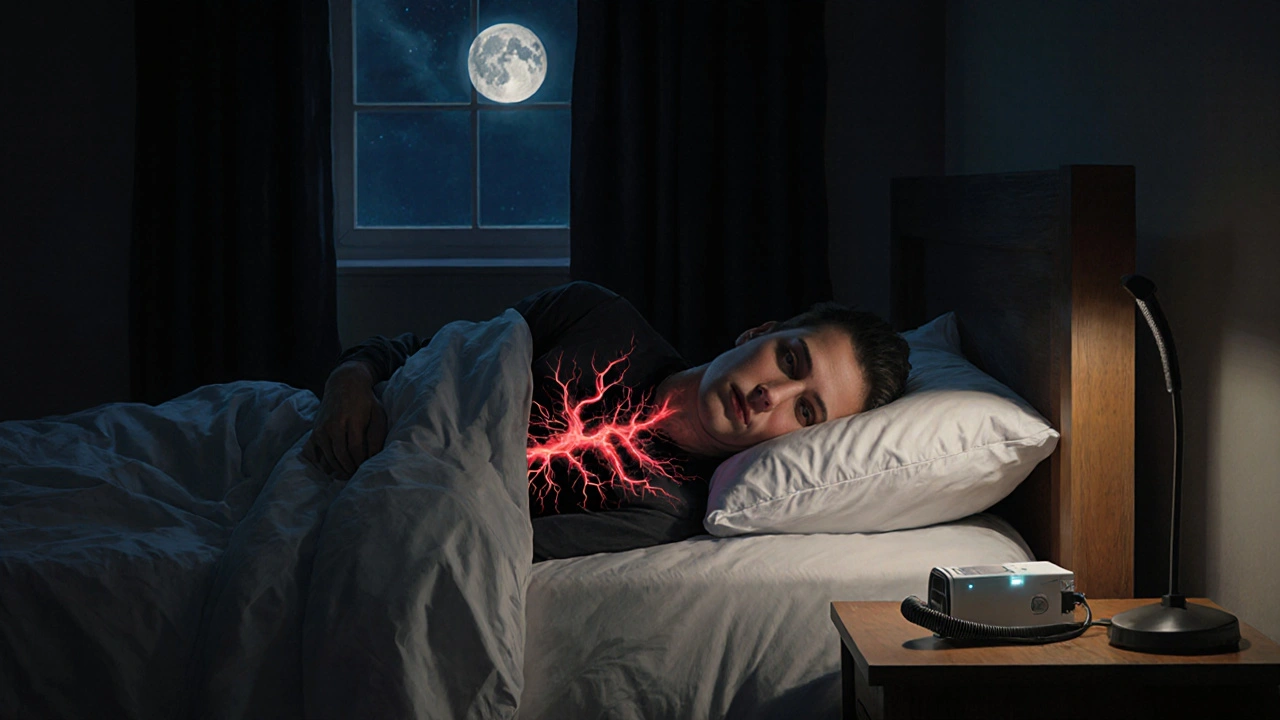Obstructive Sleep Apnea: Causes, Risks, and What You Can Do
When you stop breathing—multiple times a night—because your airway collapses, that’s obstructive sleep apnea, a sleep disorder where throat muscles relax too much during sleep, blocking airflow. Also known as OSA, it’s not just loud snoring. It’s your body fighting for air while you think you’re sleeping. This isn’t normal tiredness. It’s a medical condition that quietly raises your risk of high blood pressure, heart disease, and stroke.
People with obstructive sleep apnea, a sleep disorder where throat muscles relax too much during sleep, blocking airflow. Also known as OSA, it’s not just loud snoring. It’s your body fighting for air while you think you’re sleeping. often wake up gasping, feel exhausted even after 8 hours in bed, or have morning headaches. It’s more common in people who are overweight, have a thick neck, or sleep on their back. But it can happen to anyone—even kids. And it’s often missed because the person doesn’t remember waking up. Your partner notices the silence, then the snore. That’s the pattern.
What makes this dangerous isn’t just the lack of rest. Every time your airway closes, your oxygen drops. Your heart has to work harder. Over years, that stress builds up. Studies show people with untreated obstructive sleep apnea are more likely to develop irregular heart rhythms, type 2 diabetes, and even depression. It doesn’t just hurt your sleep—it hurts your whole body.
Thankfully, there are proven ways to fix this. The most common solution is a CPAP machine, which keeps your airway open with gentle air pressure. But it’s not the only option. Weight loss, changing sleep position, oral devices, and even surgery can help depending on the cause. The key is not ignoring it. If you’re tired all the time, snore loudly, or your partner says you stop breathing at night, get checked. It’s not weakness to ask for help—it’s the first step to waking up fully again.
Below, you’ll find real stories and practical advice from people who’ve dealt with this. Some found relief with lifestyle changes. Others needed medical devices. A few discovered it was linked to other conditions like metabolic syndrome or hormone issues. No two cases are exactly alike, but they all share one thing: help is available. You don’t have to live with sleepless nights and daytime fog.

Sleep Apnea and Cardiovascular Risk: How Snoring Could Be Hurting Your Heart
Sleep apnea isn't just noisy sleep-it's a hidden driver of high blood pressure, heart attacks, and strokes. Learn how breathing pauses at night silently damage your cardiovascular system-and what to do about it.
Read more